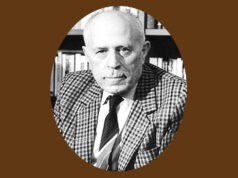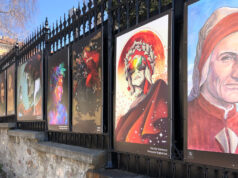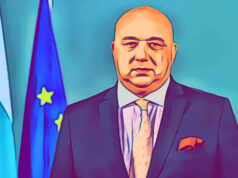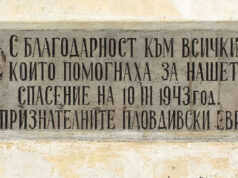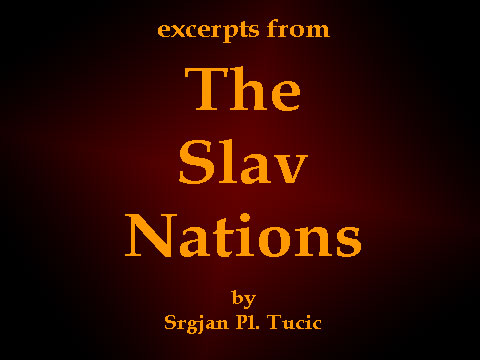 The following is an excerpt from The Slav Nations, by Srgjan Pl. Tucic, a Serbian author writing for an English audience in the early months of the First World War. The Slav Nations was a volume in the Daily Telegraph War Books series.
The following is an excerpt from The Slav Nations, by Srgjan Pl. Tucic, a Serbian author writing for an English audience in the early months of the First World War. The Slav Nations was a volume in the Daily Telegraph War Books series.
Bulgaria’s relations with Serbia have varied quite as much as those with Russia, but with the difference that in these ups and downs the nation has always been undivided. Bulgarian distrust of Serbia dates from the beginning of the political independence of the former. Instead of trying to settle their differences in a brotherly spirit, and to eliminate the Macedonian bone of contention by fixing the spheres of influence, both parties – especially Bulgaria – worked themselves up into a fever of enmity which could only be mutually detrimental.
Actual frontier collisions added fuel to the fire, and the situation grew steadily worse. It is safe to say that there was never any love lost between the Serbs and the Bulgarians, even if political opportunism at times dictated a more friendly attitude. Many discerning Bulgarian politicians have often tried to promote a more cordial and neighbourly understanding between the two states for the sake of the Slav cause and the common good, and their Serbian colleagues loyally supported them in this. But their work was always undone by the distrustful attitude of Bulgaria, which was ever increased by foreign influence.
In 1885 the nation entered into the war with Serbia with unanimous enthusiasm and a bloodthirsty spite almost inconceivable between brother nations. The war was fierce, and fate favoured Bulgaria; but, instead of being content with their success, and exhibiting a victor’s finest quality – humility, the Bulgarians only grew increasingly bitter in their hatred towards Serbia, and showed it in offensive taunts. After their defeat the Serbs obviously could not feel very friendly towards their neighbours, but I do not believe they hated them in their souls. But from one cause or another it was impossible to find the way to friendship.
The Bulgarians declared that their differences with Serbia were by no means settled in this war, and that the Macedonian question would have to be decided beyond dispute. Thus the war was continued, unfortunately not only with the pen, but also with arms, for the Serbian and Bulgarian bands in Macedonia waged war upon each other more fiercely than upon the Turks. Matters went from bad to worse for both nations, and especially for the Slav cause in the Balkans. Russia exerted all her influence to reconcile the two, but with no result beyond promises of amendment. Several influential Slav personages were equally unsuccessful until the youth of the Southern Slavs entered the lists with a new plan of campaign, and attacked the problem from the standpoint of Southern Slav Culture.
The authors and artists of Croatia and Slavonia, who had long stood in friendly relations with Serbia, made it their business to include the Bulgarians in the cause of Southern Slav Culture. As the intellectual youth of Bulgaria was at that time passing through a phase of national regeneration and desired to widen their horizon, these efforts fell on fruitful soil. Soon afterwards joint exhibitions of Southern Slav artists were arranged in Belgrade, Sofia, and Zagreb, and in each case an Authors’ Congress was held simultaneously. By these meetings and mutual intercourse many sharp corners were smoothed away, and many points of difference were abolished, chiefly by the help of the Croats. Serbs and Bulgarians meeting eye to eye at last realized that they were brothers, sharing a common future.
The Exhibition in Belgrade coincided with the coronation of King Peter, and we witnessed the unexpected spectacle of Bulgarians acclaiming the King with as much enthusiasm as the Serbs. Those were the days of brotherhood and fellowship. The representatives of Bulgarian art and literature took their mission seriously and sincerely, proving true apostles of peace and friendship between the two peoples. They reaped considerable success, for the tide of mutual enmity subsided, and when King Peter came to Sofia on an official visit he met with a reception that expressed not merely the pomp and circumstance of a Court but the heartfelt cordiality of a friendly people.
It must not be forgotten that in this rapprochement good service was rendered by those politicians of both countries who persistently did their best to improve mutual relations. Chief among these is the Serbian statesman, Nikola Pašić. He cultivated this mutual friendship so successfully that it culminated in the Balkan Alliance, which would have proved a lasting blessings to the whole of the Balkans if it had not been broken by the attack of Bregalnica. Yet the collapse of the Alliance was not due to Bulgaria, but to other extraneous influences.




